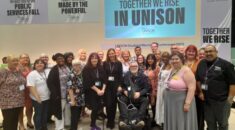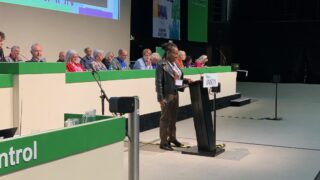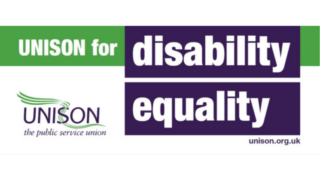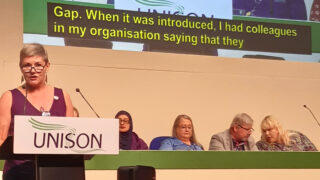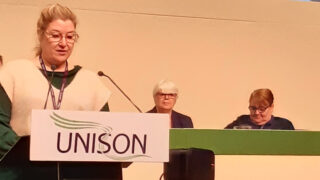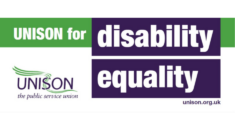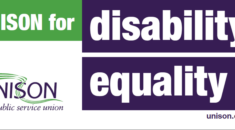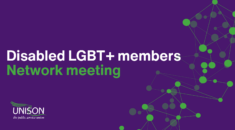A busy morning at UNISON’s disabled members’ conference continued with a debate on access to voting.
Alvin Chambers of Newcastle City told delegates that “all voters have the right to vote independently and in secret … I know this, because the Electoral Commission says so on the website”.
But as he went on to explain: “Good luck getting into the voting station if you’re in a wheelchair and, if you do get in, the polling booth probably won’t be accessible to you.
“What if you’re blind and there’s no braille ballot paper?” In that case, the clerk at the polling station will probably read you a list of candidates and then put a cross where you tell them. As Mr Chambers noted, the cross will almost certainly be put against the name you say, “but it’s hardly secret”.
Iain Scott-Burdon, on behalf of the deaf caucus, pointed out the problems that deaf voters face to voting – “for instance, hustings … are interpreters provided? They’re not”.
And if a candidate knocks on your door, Mr Scott-Burdon said that he wouldn’t be able to have a conversation. “It’s time for access for everybody.”
Delegates also raised concerns about the trials, earlier this year, of photo ID being required in order to vote.
In an impassioned debate on recognising disability hate crime, conference was reminded of Lee Irving, a young disabled man in Newcastle, who was abused and murdered by a group of ‘friends’ in the city in 2015.
In court, his family, the police and the CPS described it as a disability hate crime, but the judge disagreed, refusing to accept that he had initially been targeted because of his learning disabilities made him particularly vulnerable.
Delegates unanimously backed the call for such hate crimes to be recognised as exactly that.
Similarly, conference also backed a motion calling for ‘mate crime’, where vulnerable people are abused for gain by someone they believe is a friend.
Conference also supported calls for legal recognition of British Sign Language (BSL) and instructed the national disabled members’ committee to raise awareness of the issue, support the campaign for a BSL Act and consider ways in which UNISON can contribute to that campaign.


